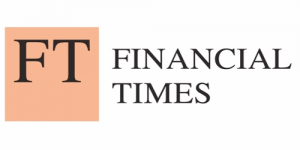The Next Four Months Are Critical
CEO Update – September 2020

Duncan Edwards
Chief Executive Officer
BritishAmerican Business
The concept of La Rentrée, the return to work after the summer holidays, is not culturally entrenched in the US and UK as it is in France but nevertheless, there is definitely a renewed sense of energy and activity around, which will only increase in the USA after Labor Day. Of course this year, the return to work is more virtual than physical with the majority of office based employees still working remotely, but there is still a feeling of plans being made, courses of action being settled and deep breaths being taken.
Our sense is that decisions made in the next four months are going to have an outsize impact on the years ahead for the world and, as major players in the global economy, especially for the USA and UK and the businesses that operate in and between them. Aside from the obvious issue of the US elections in November it feels that decisions, or at least directions of travel, are going to be decided before the turn of the year the implications of which will resonate well into the future. Four major themes occur to me: government fiscal response to the crisis, big business decisions about working practices, the future of metropolises like New York and London and whether global trade tensions tighten or ease.
The UK has already begun a major debate about the fiscal response that the government might need to take with the battle lines clearly drawn between those advocating major increases in personal (direct and indirect) and corporate taxation and those who believe such action will delay or kill-off any recovery. Exactly the same issue is clearly also implicit in the US election and is being played out in Congress right now.
As the direct health risk seems to be abating, companies need to decide how and crucially where they want their people to work after six months of being off-site. These decisions, including domestic and international travel guidelines, attendance at conferences and even taking in-person meetings are all going to be taken over the next few months. We already know things won’t be the same as before but the scale of the change is in the balance.
Directly linked to this are the prospects for major global cities like New York and London which are staring down the barrel of depopulation, reduced tax revenues, bankrupt mass transit systems and, possibly, rising social unrest. In the long term these cities will work it out but in the medium term it is far from clear how they will cope. Ideally national government will step in with help, but political challenges in the US and UK will not make this easy.
The WTO will try to appoint a new Director General but the prospects for the reform that is needed to allow it to function, specifically around how decisions are made, look remote. Although the efforts have been heroic by both sides, the US UK trade negotiations will not finish by the election and the route to a conclusion thereafter is difficult. The negotiations between the UK and EU risk ending with both parties imposing friction where none is needed…and I haven’t even talked about China.
Every member company of BAB is going to be affected to some extent by these huge issues and we will be talking about these and others, sustainability, inclusive capitalism, changing employee expectations and more throughout our autumn programming. You can see the full line-up on our website here and I hope to see you at one of these great events soon.
We will also continue to contribute on your behalf to the debates themselves. You will have seen us urging a re-opening of the US-UK air corridor recently and yesterday we published our recommended approach to the tricky issue of market access for food products in the trade agreement as well as what should happen when the negotiations have to stop for the election.
It is going to be a busy and consequential autumn and, whatever it brings, we are glad to be on this journey with you, our members.

In 1970, the Nobel Prize–winning economist Milton Friedman wrote a landmark op-ed for The New York Times on the role a business should play in society. Fifty years later, his views continue to spark lively debates among professionals across industries. Join this conversation at Corporate Social Responsibility Revisited, a new global virtual conference from Chicago Booth on Thursday, September 10.
The conference will welcome practitioners, professors, and policymakers representing a wide variety of perspectives and backgrounds to discuss and debate the role of the corporation in corporate social responsibility, including environmental sustainability, corporate governance, and gender and racial diversity in the workplace.
Each of the University’s three global campuses in Chicago, London, and Hong Kong will host a portion of the conference throughout the day. At the conclusion of the Chicago portion of the conference, the conversation will continue with a two-day event hosted by the Stigler Center for the Study of the Economy and the State entitled Political Economy of Finance 2020: Should Corporations Have a Social Purpose?


